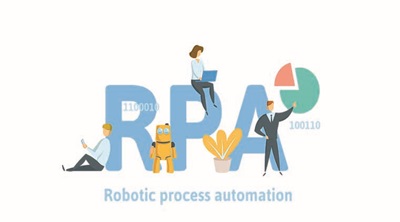By
Chris Busbee
|
Date Published: March 07, 2019 - Last Updated December 03, 2019
|
Comments
Digital and automation initiatives have been making waves as companies face
the growing complexities of contact center operations. It’s clear that
automation solutions like Robotic Process Automation (RPA) are no longer a
nice-to-have, but a need-to-have to keep up with evolving demand.
With the technology buzz in high gear, it can be difficult to sort through
the ever-growing number of providers out there. How do you steer through
the clutter and choose the RPA solution best suited for your business?
When considering your options, make sure to ask the right questions and see
it for yourself. Here are some criteria to keep in mind as you
differentiate vendors in the RPA space:
1.
Is it built exclusively for the contact center? Many RPA vendors cast a wide net in terms of the industries
they help. The downside to this is that it’s difficult to be everything to
everyone. The industry is complex and faces its own unique set of
challenges. Finding a solution that’s purpose-built for the contact center
can be a win-win in the long run.

2.
Does it impact the right metrics?
Efficiency, agent engagement, and customer experience are critical to the
contact center. But some RPA platforms are limited in the metrics they
impact, only geared towards cost reduction and efficiency. Make sure the
RPA solution you choose positively impacts the metrics that matter to the
business, agent, and customer. Does it help with agent development and
satisfaction? Can it improve adherence and reduce average handle time
(AHT)? Does it eliminate manual processes like exception entry? And can it
improve FCR and service quality? Contact Center RPA should be able to do
this and more to help you improve all aspects of your center operations.
3.
Does it fully Integrate with your environment?
Flexibility with systems integrations is critical for deploying your
Contact Center RPA solution. It is also indicative of a vendor’s experience
and expertise with the contact center technologies and platforms with which
the RPA solution must coincide and work in conjunction. Look for a solution
that integrates with multiple WFM and ACD systems as well as other data
sources such as CRM. This will ease the implementation process and ensure
you’re up and running without added hassle. This will also protect your
investment from any future state technology changes to your infrastructure.
4.
Does the company have satisfied customers?
A reputable RPA provider will have a network of satisfied, referenceable
customers. The customer base should be representative across industries and
magnitude in terms of operational size and complexity. Ask for customer
testimonials and case studies, and most importantly, speak directly to
those customers. Observe public, industry events where customers reference
and speak about their automation journey. This is the only way to gather
real-world data as evidence of the provider’s claims and solution
capabilities.
5.
What support is there for your RPA journey?
Support is a crucial aspect of your automation journey. Steer clear of the
vendor that may have an abundance of platform capabilities but will provide
little support once implemented. Would you really want to be left halfway
up a mountain? It’s important that the vendor support you along the way,
continuing to help you achieve success and get the most out of your
investment.
It’s also important to look for vendors that have a community of users made
up of workforce management and operations professionals and peers who
network, communicate, and share real-life experiences and best practices.
Identify and participate in forums designed to bring these peers together
for learning. Review online communities and web help tools designed for
user collaboration, research, FAQs and access to training and subject
matter expertise.
6.
Does the company invest in R&D?
Research and development are fundamental to a company’s long-term success
and growth. It fuels new products, market share, high margins, and rates of
growth. Less stable companies will be tempted or even forced to cut back on
R&D. Solid RPA patent output, in conjunction with a strong,
referenceable customer base is a key indicator of a vendor with a
well-established platform and ability to make the commitment to R&D for
future enhancements and innovation.
7.
Is the company reliable and stable?
It goes without saying that the stability, tenure, and community
involvement of a company should be a vital criterion within the
decision-making process. Unfortunately, in newer markets, it is often not
given the weighting it deserves. Often, niche players will appear on the
scene delivering a niche product. It seems they are afforded a “get out of
jail free” card when it comes to weighing in on their stability, tenure,
and dedication to the community. It is important not to overlook this
important aspect of the vendor you plan on partnering with for your Contact
Center RPA journey.
8.
Ultimately, what is your expected return?
As with most technology projects, sometimes the hardest step to signing the
contract is producing the business case that will satisfy your finance
stakeholders and grant you the green light to move ahead. An RPA provider
with a well-established track record will be able to work with you to
create such a business case and support you in those executive level
financial discussions. They should be willing to also stand beside you in
making those returns a reality. As mentioned throughout, such a vendor will
be able to direct you to a community of users that can go before you and
share their experience on how to best socialize and drive your business
case to fruition.
The tips above should guide you in choosing the right RPA vendor for your
automation journey. Make sure to do your research and request a live demo.
Choose the solution designed to meet the unique needs of your contact
center, rather than a one size fits all. In the end, your agents,
customers, and overall business will benefit.